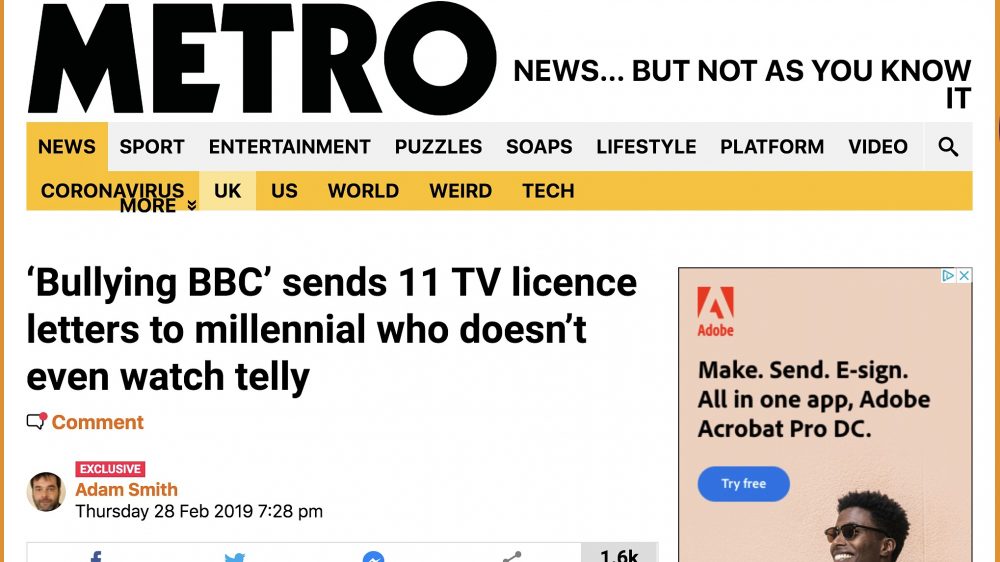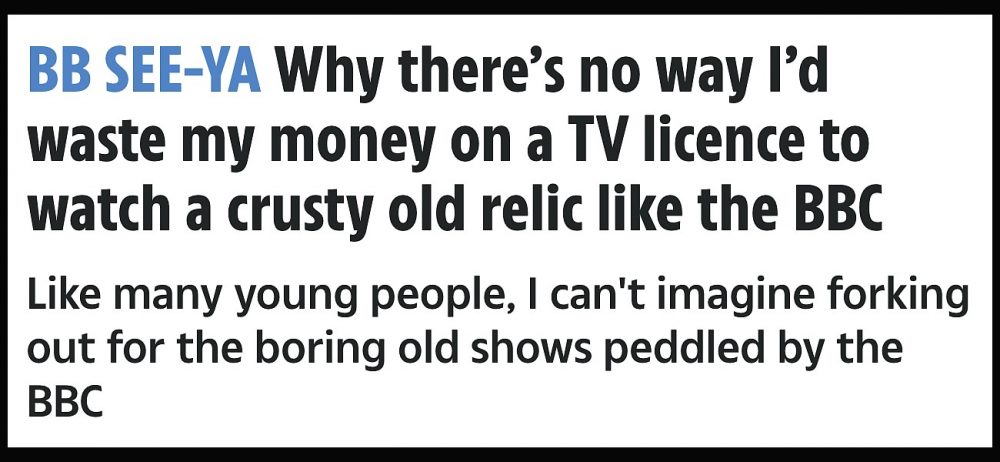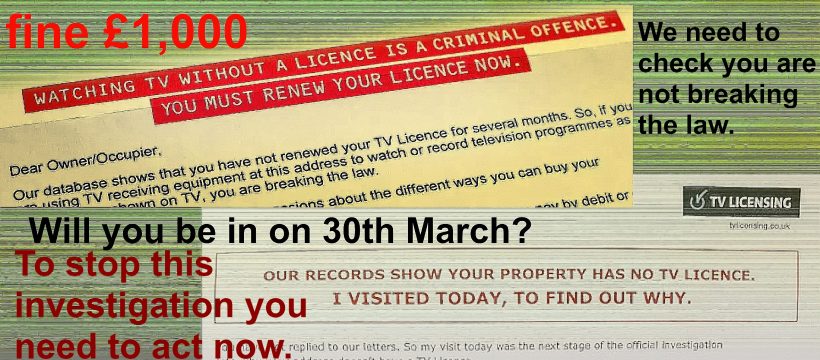Tim Davie, the BBC’s Director-General, has said that over 75s will not be threatened with legal action for refusing to pay the TV licence fee. This sounds odd, since many already have been! People have been sending on the threatening letters to Age UK and Lord (Ian) Botham, who recently accused the BBC of institutional bullying. The BBC was even sending threatening letters to individual rooms in care homes, which would have been covered under the umbrella of the care home.
In clarification Tim Davie said: “We are not sending any enforcement letters to older people who previously held a free licence.There are no visits taking place in relation to over-75 licences at this time… we are giving people time to transition”. Among the various criticisms Lord Botham expressed was: “It’s also clear that people of this age cannot be expected to cope with the bureaucracy of means testing.”
So this is just a temporary amnesty. Once we come out of the lockdown over 75s will need to buy TV licences or prove that they’re exempt.
With 800,000 households not responding to the BBC’s aggressive letters they are missing out on up to £126 million a year. These threatening letters are a very strange way of trying to increase sales, and retain existing customers.

In the article below in The Sun in Feb 2018, George Harrison said; “I’m 21, and the majority of people I know would never dream of sitting down and tuning in to BBC TV”.

But it’s not just younger people who don’t like the BBC. I’m a pensioner, we have a TV licence, but despite the lockdown I currently watch about one hour per year of broadcast TV. I find the BBC particularly dumb. I regard the BBC as a form of pollution. My TV viewing plummeted in 2004 when I subscribed to the Love Film DVDs through the post scheme. For news I read newspapers. You get a much wider range of topics and in-depth analysis. Reading the news is much faster than watching it.
Kate Bingham, the now former Chair of the UK Vaccine Taskforce, is a human dynamo responsible for saving many lives. How does she get things done? She doesn’t own a TV.
Last year the BBC lost another 250,000 customers. There is a lot of excellent competition. The licence fee income accounted for 71% of BBC funding. The BBC does have a commercial arm, but it obviously suits it to live off the near compulsory licence fee. Who does it represent? Who is it accountable to? If it was put on a subscription model it would be forced to listen to it’s customers – the British public.
The BBC could require viewers of live TV and the BBC iPlayer to pay a subscription, or enter a special code from their TV licence.
The BBC makes great claims for itself based on research from BARB – Broadcasters’ Audience Research Board. I think their assumptions, methodology, and results need to be challenged and taken apart. In the long term falling advertising revenue at the ITV companies, and reducing numbers of licence fee payers for the BBC will expose the BARB figures. But then it will be too late. The broadcasters will have gone the same way as 78rpm records.
Times have changed, and the BBC needs to change. The technology to operate a subscription model has existed for a long while. You’d pay in advance to watch, just as you do when you buy a licence. The big difference would be that you would be treated like a paying customer, not a criminal to be harassed.
Alan Tucker
I was prompted to write this after the BBC’s outgoing chairman, Sir David Clementi said last weekend that the BBC’s critics would not cope without it. “Think you could live happily without the BBC? Try it for two weeks and you would be proved wrong”, he claimed. It was then that I worked out that I’d been thriving without it for 17 years.



Yep, fully agree
just look at the BBC , Better know as Bashing British Culture , Programes from years ago being repeated time after time . And the salary paid to people who read off a Auto Cue , is disgusting .